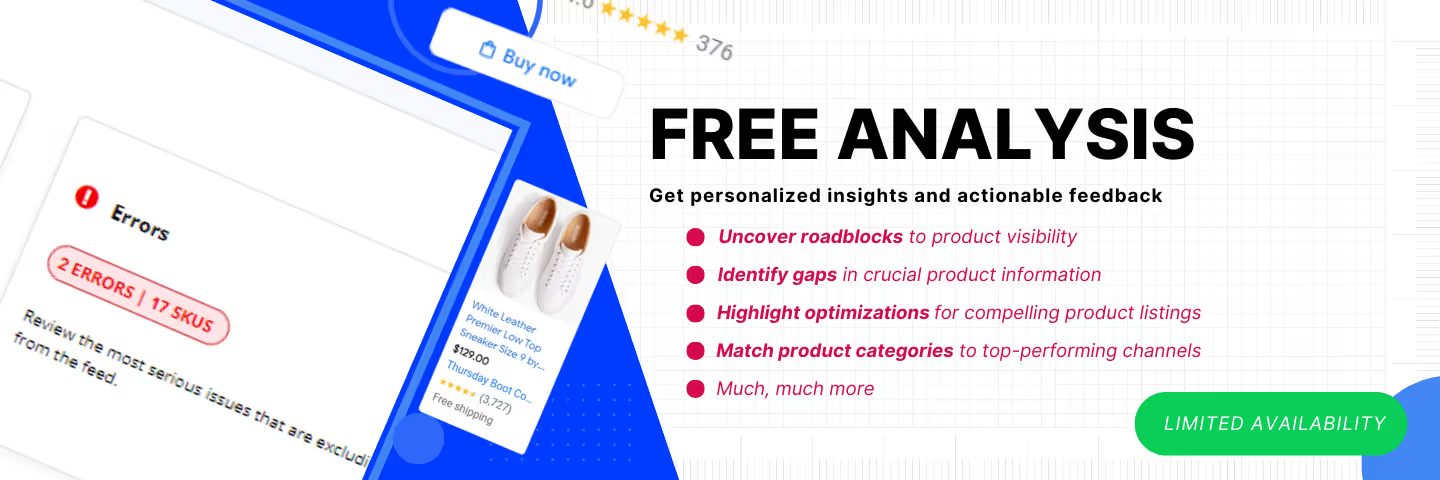Every retail business has different key performance indicators (KPIs) depending on their specific goals. How important one KPI is over another can be a result of the products you sell or even the format of your sales process. For marketplace sellers, that means watching, measuring and continually improving KPIs like Conversion Rate, Average Order Value and Return on Ad Spend. These are hard, analytical stats that may be found in your enterprise analytics console.
But what about the KPIs for which you have to dig and do math to uncover? Yeah, those are just as important. Here are some measures of marketplace selling success you're probably ignoring.
1. Growth
This one seems obvious, right? You want your products to be on marketplaces where your sales are growing – and the more growth, the better.
Except not necessarily. High levels of growth are great, yes, but consider how it works with other KPIs and whether or not this growth is sustainable.
Can you keep up with product demand? Are you selling lots of products but making minimal profit – or no profit at all due to costs or too-low price points?
If you plan on placing your products on the marketplace long-term, sustainability is key for continued success. In other words, it is vital that you pay attention to how fast you’re growing (on individual channels and cumulatively), because it impacts your business’s overall success.
2. Liquidity
To be successful, online marketplaces must reach a critical mass of supply and demand where they have both enough buyers and enough sellers to start earning a profit. In other words, liquidity.
Well, the same thing is true for individual merchants selling through these marketplaces. Though for retailers, liquidity here means measuring the activity and movement of the marketplace by looking at the entire buying process.
How long does it take for a transaction to occur? How often are goods and services moving over a certain period of time? How is this activity affecting your investment in the marketplace? And how high of a priority is it to your business?
If sales are slow and your products must be stored for long periods of time, warehouse fees will cut into your profits. If items are flying off the shelves, you have to be able to keep up with demand, shipping, and customer communication.
3. Seller Rating
Many retailers are so focused on the products themselves that they lose sight of the forest for the trees.
Yes, it is important to make sales. Yes, it is important to have a good ROI by keeping your costs low relative to the amount of money you’re making. But in the long run, your reputation as a merchant matters more than anything else.
More than 8 in 10 people say that negative reviews impact their buying decisions. If customers become dissatisfied with your products or services, your business will suffer over the long-term.
Not only are customers less likely to offer repeat business, online marketplaces tend to frown on a low seller rating. You could be penalized – and in the worst case scenario, your business could even get kicked out of the marketplace altogether.
4. Net Revenue
Out of all the big numbers, net revenue is especially important for sellers and suppliers to pay attention to. It measures actual revenue, then subtracts the amount of commission that the marketplace takes for each transaction, often called the “take rate.”
Take rates differ based on the marketplace. Whether you are searching for marketplaces or are tracking your success on a marketplace where you currently sell products, net revenue should not be ignored.
Keeping Track of It All
When you have to track KPIs across multiple channels, the job can become complicated and time-consuming quickly.
GoDataFeed helps you keep tabs on more data so you can more easily measure some of these not-so-evident KPIs. Establish performance thresholds and the system will look out for trends, then alert you and/or take action to make sure you stay in the black.
But it all starts with knowing which KPIs are most important for your business. Identify your key performance indicators and be sure to set a review process for them with each new marketplace you sell on. This will give your business the best chance of continued success.





%20).png)
%20).png)
